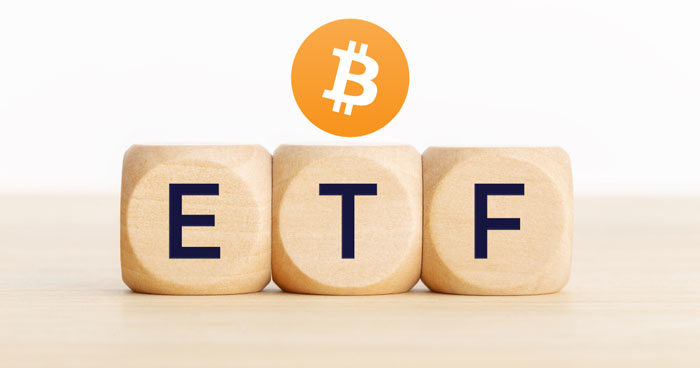What is a Bitcoin ETF?
A Bitcoin Exchange-Traded Fund (ETF) is a financial product that tracks the price of Bitcoin and allows investors to gain exposure to Bitcoin's price movements without directly owning the cryptocurrency. ETFs are investment funds that are traded on stock exchanges, and they aim to replicate the performance of a specific asset or a basket of assets.

Here's how a Bitcoin ETF typically works:
1. Structure:
- A financial institution creates a fund that holds a certain amount of Bitcoin.
- This fund issues shares that represent ownership in the Bitcoin held by the fund.
2. Listing on Stock Exchange:
- The ETF is listed on a stock exchange, making it tradable like any other stock.
3. Price Tracking:
- The ETF's price is designed to closely track the price of Bitcoin. This is achieved through the management of the fund's holdings and other financial instruments.
4. Accessibility:
- Investors can buy and sell shares of the Bitcoin ETF through traditional brokerage accounts, just like they would trade stocks.
5. Benefits:
- Provides an alternative for investors who want exposure to Bitcoin without directly holding or managing the cryptocurrency.
- Allows for easier integration into traditional investment portfolios.
6. Regulatory Considerations:
- The approval and regulation of Bitcoin ETFs vary by jurisdiction. Different countries have different regulatory approaches to cryptocurrency-related financial products.
7. Custody and Security:
- The fund's custodian is responsible for securely holding the Bitcoin that backs the ETF. This custodian is typically a regulated entity.
8. Redemption and Creation:
- Authorized participants, usually large institutional investors, can create or redeem shares of the ETF in exchange for the underlying Bitcoin. This process helps keep the ETF's price in line with the value of the Bitcoin it holds.
Bitcoin ETFs are seen by some as a way to attract traditional investors who may be more comfortable with traditional investment vehicles. They provide a way for investors to gain exposure to Bitcoin's price movements without having to navigate the complexities of cryptocurrency exchanges or handle private keys.
It's important to note that the regulatory environment for Bitcoin ETFs is evolving, and approval processes vary globally. Investors should be aware of the specific regulatory framework in their jurisdiction and carefully consider the risks associated with any investment, including the potential for market volatility and fluctuations in the price of Bitcoin.
